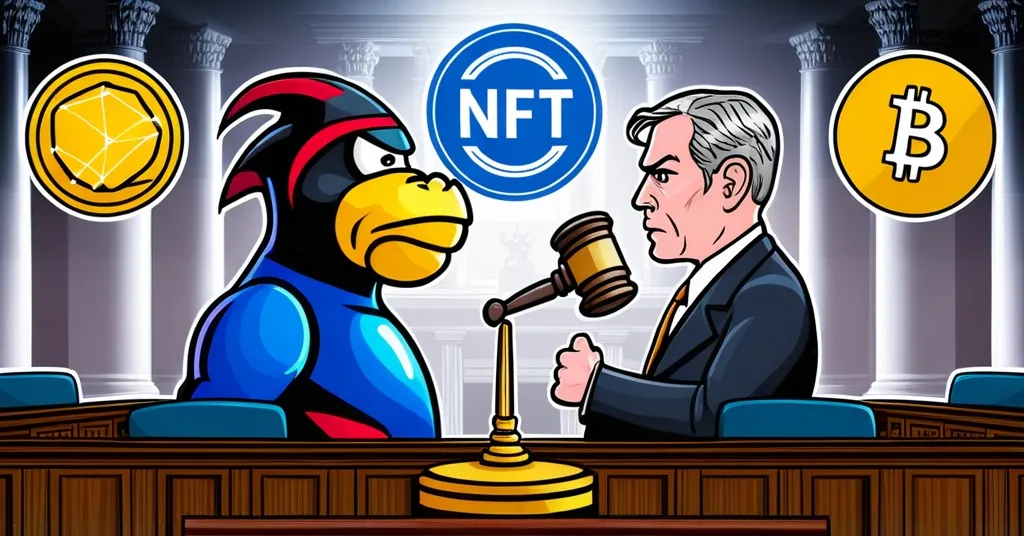CyberKongz Faces SEC Challenge: Pivotal Moment for NFT and Web3 Gaming Regulation

CyberKongz Takes on the SEC: A Defining Moment for NFT Regulation
The U.S. Securities and Exchange Commission (SEC) has intensified its focus on the NFT landscape, issuing a Wells notice to CyberKongz. This move by the SEC suggests potential enforcement action, challenging CyberKongz on the grounds of securities law. The NFT project is determined to challenge these claims, arguing against the SEC’s interpretation of blockchain technology and the classification of tokens within blockchain games.
- SEC issues a Wells notice to CyberKongz, indicating possible enforcement action.
- CyberKongz disputes the SEC’s understanding of blockchain technology.
- The SEC insists tokens in blockchain games must be considered securities.
- CyberKongz challenges the SEC’s view on a 2021 contract migration.
Background and Context
CyberKongz first came into the SEC’s sights two years ago, with the recent Wells notice marking an escalation in the dispute. The SEC’s contention revolves around the use of ERC-20 tokens in blockchain games, which they believe should be registered as securities. ERC-20 tokens are a standard type of token used on the Ethereum blockchain, representing various digital assets. The regulator’s scrutiny is part of broader efforts to oversee the burgeoning NFT market, where digital assets are often minted and traded as non-fungible tokens, distinct with unique metadata.
Previous actions by the SEC have not been limited to CyberKongz. In August, the NFT marketplace OpenSea received a similar notice. The SEC appears keen on evaluating whether NFTs, and by extension tokens used in games, fall under existing securities laws. Such regulatory measures could have significant implications for the web3 gaming industry, threatening to curb innovation if not applied judiciously.
The Current Dispute
CyberKongz vehemently opposes the SEC’s interpretation, particularly regarding an incident in April 2021. The SEC has misclassified what was a contract migration of Genesis Kongz as a sale of securities. CyberKongz argues this misunderstanding reflects a broader issue with the regulator’s grasp of blockchain-based transactions and smart contracts—self-executing agreements with the terms of the contract written into code.
A representative from CyberKongz expressed the company’s frustration: “We have been suffering in silence for the last two years, ever since we first received contact from the SEC.” This sentiment resonates with many in the NFT sector who are grappling with an unclear regulatory framework.
Future Prospects and Implications
The resolution of this case will be pivotal. Should the SEC’s stance triumph, it could establish a regulatory precedent that extends to all NFT and web3 gaming projects, imposing stringent compliance requirements that may stifle creativity and investment. The need for a regulatory approach that both protects investors and nurtures innovation is evident. CyberKongz’s stand against the SEC, therefore, holds importance beyond its own survival, potentially guiding future policy development in the blockchain realm.
As this legal battle unfolds, the broader crypto community is left to ponder essential questions:
- How can blockchain tokens be classified in a way that balances regulation and innovation?
- What will be the long-term implications for the web3 gaming industry?
- Is the SEC prepared to evolve its regulatory approach to better understand blockchain technology?
The outcome of CyberKongz’s challenge will not only influence the future of NFT regulation but also shape the dialogue between innovation and regulation amid the digital transformation. This ongoing case embodies the critical intersection of technological advancement and regulatory oversight in the crypto age, and its implications will echo throughout the industry.



